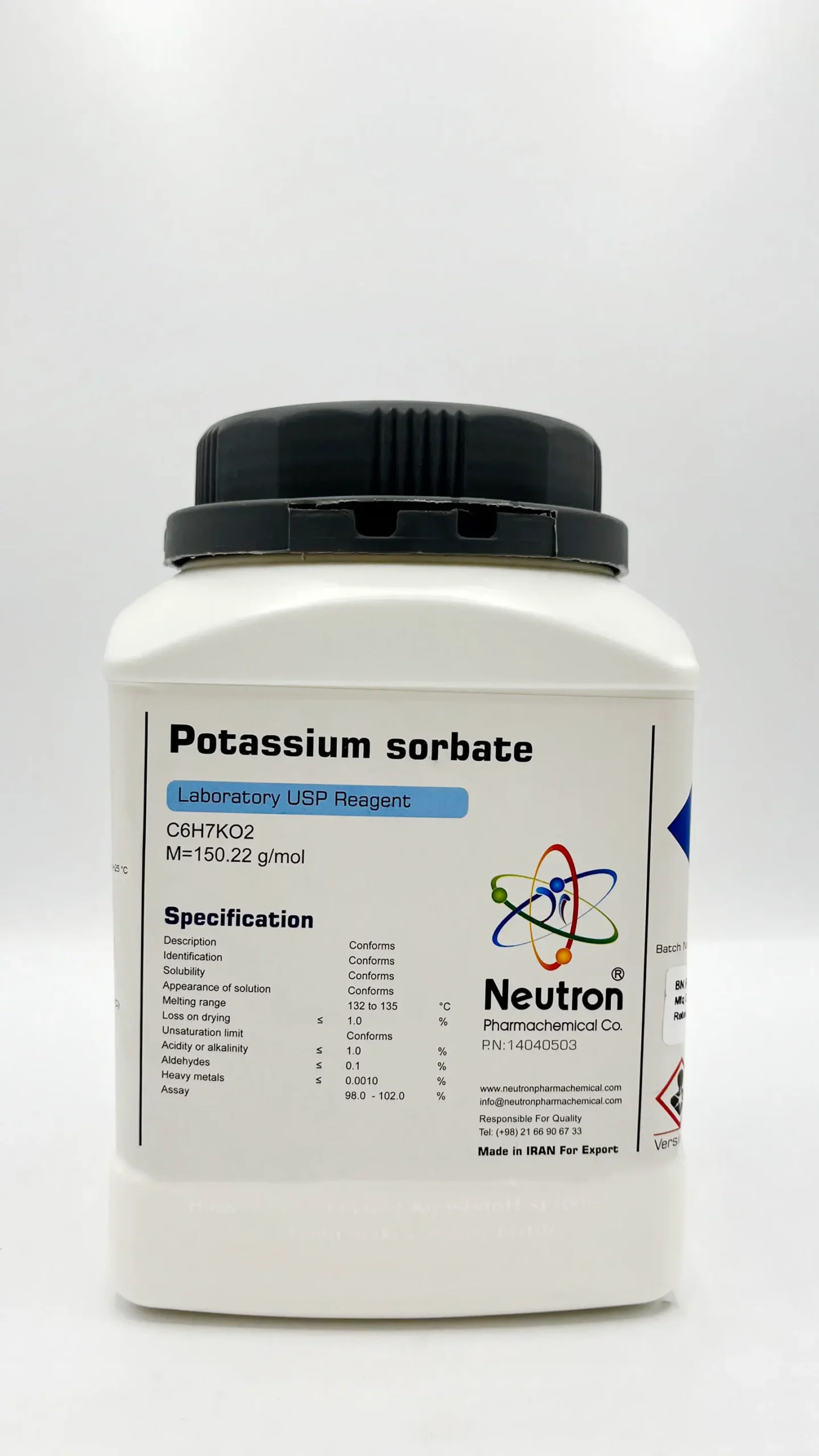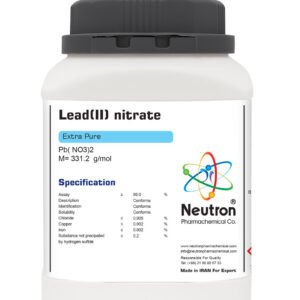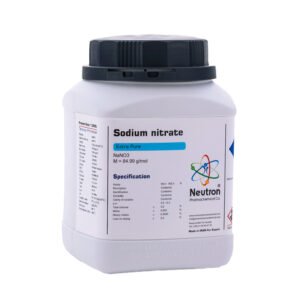Potassium sorbate
| Formula | C6H7KO2 |
| Molar mass | 150.22 g/mol |
| Density | 1.36 g/m3 |
| Bulk density | ~370 kg/m3 |
| CAS number | 24634-61-5 |
| HS Code | 29161980 |
| EC number | 246-376-1 |
| Storage | Storage at +15 to +25 °C |
| SDS | available |
| RTECS | WG2170000 |
| R phrase | R 36/38 |
| S phrase | S 24/25 |
| Odour | odourless |
| Form | solid |
| Color | white |
| Ignition temperature | >180 °C |
| p H value | 8 – 11 (1400 g/l 20 °C) |
| Solubility in water | 1400 g/l ( 20 °C) |
| Solubility in ethanol | soluble ( 20 °C) |
| Melting point | ~ 270 °C |
| Thermal decomposition | > 270 °C |
| Description | Conforms | ||
| Identification | Conforms | ||
| Solubility | Conforms | ||
| Appearance of solution | Conforms | ||
| Melting range | 132 to 135 | °C | |
| Loss on drying | ≤ | 1 | % |
| Unsaturation limit | Conforms | ||
| Acidity or alkalinity | ≤ | 1 | % |
| Aldehydes | ≤ | 0/1 | % |
| Heavy metals | ≤ | 0/001 | % |
| Assay | 98.0 – 102.0 | % |
Potassium sorbate is a white, odorless, and tasteless crystalline powder commonly used as a preservative in food, beverages, cosmetics, and pharmaceuticals due to its antimicrobial properties. It is the potassium salt of sorbic acid and is favored for its safety and effectiveness in inhibiting molds, yeasts, and fungi.
🏭⚗️ Production
Potassium sorbate is produced by neutralizing sorbic acid with potassium hydroxide or potassium carbonate in aqueous solution, followed by crystallization. The resulting crystals are filtered, washed, and dried to obtain the high-purity potassium sorbate suitable for industrial and food-grade applications.
🔬 Properties
The chemical formula of potassium sorbate is C₆H₇KO₂, with a molar mass of approximately 150.22 g/mol. It appears as a white crystalline powder that is soluble in water but insoluble in oils and fats. Potassium sorbate is stable under normal storage conditions but can degrade under prolonged exposure to heat and moisture. It has a mild alkaline pH when dissolved in water.
🧪 Applications
Potassium sorbate is widely used as a preservative in various food products, including cheese, wine, baked goods, and fruit juices, to prevent spoilage by mold and yeast. It is also used in cosmetics and personal care products to extend shelf life and prevent microbial contamination. Additionally, potassium sorbate finds applications in pharmaceuticals to maintain product stability and safety.
⚠️ Safety
Potassium sorbate is generally recognized as safe (GRAS) when used within recommended concentrations. However, it may cause mild skin or eye irritation in sensitive individuals. Inhalation of dust should be avoided to prevent respiratory discomfort. Appropriate protective measures such as gloves and masks are advised during handling of the powdered form. It should be stored in a cool, dry place away from strong oxidizers and acidic substances to maintain stability.





